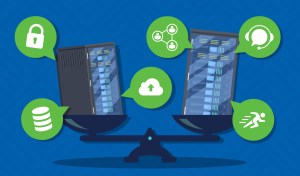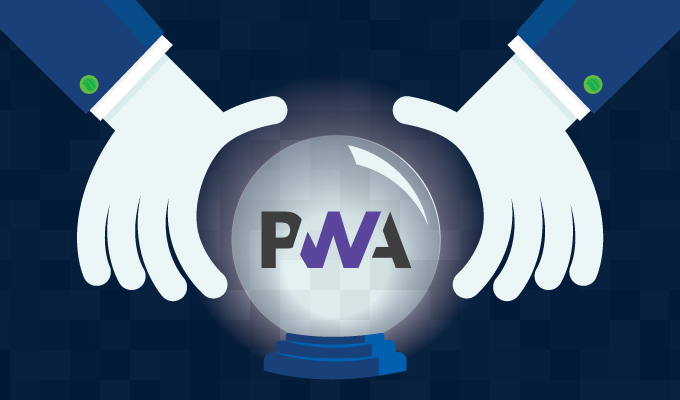Web Hosting: Everything You Need to Know
The web hosting industry can be crowded. With countless companies promising similar features, it makes it tough to decide which platform to choose (or how to choose). We will help take the guesswork out of the selection process and highlight the most important factors to consider so you can make an informed decision when picking the right web host with confidence.
First thing first. What is web hosting?
Web hosting services allow organizations or individuals to make their websites visible on the big, vast, all-knowing World Wide Web. A web host (in this case) is a company that physically houses web servers in one or more locations (data centers) and provides you with the hardware, software, and networking capabilities to connect your website to the internet. Let’s take a look at different options for web hosting.
Shared Hosting
This is the most common and affordable form of web hosting where one physical server hosts multiple sites. In this case, the resources on the server, such as memory and central processing unit (CPU), are shared with multiple website owners, often resulting in limitations. Although shared hosting plans come with a lower price point and are ideal for personal or small websites, they introduce a number of concerns including performance and security issues. Moreover, they lack control over what can be installed on the server. We do not recommend shared hosting for any of our clients.
Virtual Private Server (VPS) Hosting
A better alternative to shared hosting, VPS, gives you access to your own virtual portion of a physical server. This means you have your own allocated resources including RAM, CPU, and disk space. In a VPS environment, you are in control of your account by having full root access to the server to run commands and change configurations and can rest assured that other users do not affect your website performance.
Dedicated Server Hosting
Unlike a VPS that simulates an environment where users appear to have access to their own resources through the help of virtualization, a dedicated server is one where the entire physical resources of the machine are available to a single client. This includes memory, storage capacity, and processing power. This type of web hosting usually comes with a hefty price tag compared to other options but can be the ideal solution in some specific use cases.
Performance and Server Configuration
After deciding on a hosting type, your next step is to determine your website’s resource needs and choose a plan that best suits them. Key items to pay attention to include the following:
- Memory (RAM): Higher RAM will allow your website to handle higher traffic without being overwhelmed, as it is responsible for facilitating running multiple requests simultaneously. For instance, if you are running an eCommerce website with tens of thousands of products and hundreds of visitors per day, you should opt for a higher hosting tier that offers better specs.
- Central Processing Unit (CPU): Similar to RAM, the larger the capacity of the CPU, the more information it can store and the faster requests it can process allowing your website to perform better.
- Storage Space: The type and amount of information you will put on your website will dictate how much storage you will need. Items that will require a lot of storage are multimedia files such as video and images as well as larger databases. We recommend you opt for SSD (Solid-state Storage) which offers fast read/write speeds that will result in a quicker page load time.
- Bandwidth: This refers to the amount of data that your website can transfer to your users over a period of time. Typically, web hosts will offer monthly bandwidth caps in Gigabytes (GB) or Terabytes (TB) and will depend on your unique needs as far as web page size, number of visitors, and the number of pages they visit.

Reliability and Network Uptime
Uptime is the amount of time the server that is hosting your site is up and running without issues. Usually listed as percentage (such as 99%), it provides an insight on how reliable a web host is. Although 99% may seem high, this number can be misleading when put in context as it results in roughly 14 min/day which is equivalent to 7.2 hours/month. Compare this to a 99.9% uptime which translates to 1.44 min/day or less than 1 hour/month (way better, right?).
Although the industry standard is to guarantee a 99.9% network uptime, it is crucial to double and triple check this metric when selecting the ideal hosting company.
Security
It goes without saying that security should be one of your top priorities as a website owner and shouldn’t be neglected when choosing a web host company. We can’t stress this enough. Previously, we mentioned that shared hosting introduces some security flaws. For example, an insecure configuration or a security breach on any site within a shared hosting environment can lead to cross-site contamination, ultimately affecting you. But even when considering an upgraded type of hosting, you should look for the following security features in a hosting platform:
- Access restriction and SSH support: This lets you access your web server and execute commands securely via encryption.
- Network monitoring: Offers a way to constantly check the network for slow or failing components and notify the administrator in case of outages.
- SSL and Firewall: This provides essential security features including encrypting connections between the client and the server, as well as preventing malicious attacks targeting the server.
- DDoS Attack Protection: Short for Distributed Denial of Service, this type of attack works by generating a large volume of requests to overwhelm a server.
- Malware detection and removal: A process that monitors the website files and database for potential known malicious scripts on your server.
- Operating System security: This includes a number of best practices on the server level such as hardening file permissions, limiting access to the server, and enabling automatic software updates that offer security patches.
- Backups: it is crucial to sign up for an automatic backup plan in order to have a recent working version of your site in case of a server error, attack, or data loss.
Quality Customer Support
Top-notch customer support is as important as all the factors listed above. Not only should you look for 24/7 availability across multiple communication channels but also a knowledgeable team that understands the ins-and-outs of the technologies that power your website. Many of our clients look to our developers to manage this relationship, which we are more than happy to facilitate.
What We Recommend
Every website is unique and has different needs. When we advise clients on an appropriate hosting solution, we make sure to analyze requirements such as storage space needs, backup plans, monthly traffic/bandwidth usage, likelihood of usage spikes, etc.
Website development and maintenance can be a significant budgetary expense, but web hosting is definitely not an area to pinch pennies. “You get what you pay for” has proven to be true from our experience in the industry. That is why we look for reputable hosting solutions that have the best support and can scale as your business grows.
Conclusion
When it comes to choosing a web host, there are many factors to consider that heavily depend on your website needs and it can get overwhelming. When you need help navigating the unknown, we can take a closer look and analyze your unique situation to match you with the hosting provider that will help contribute to your website’s success.


